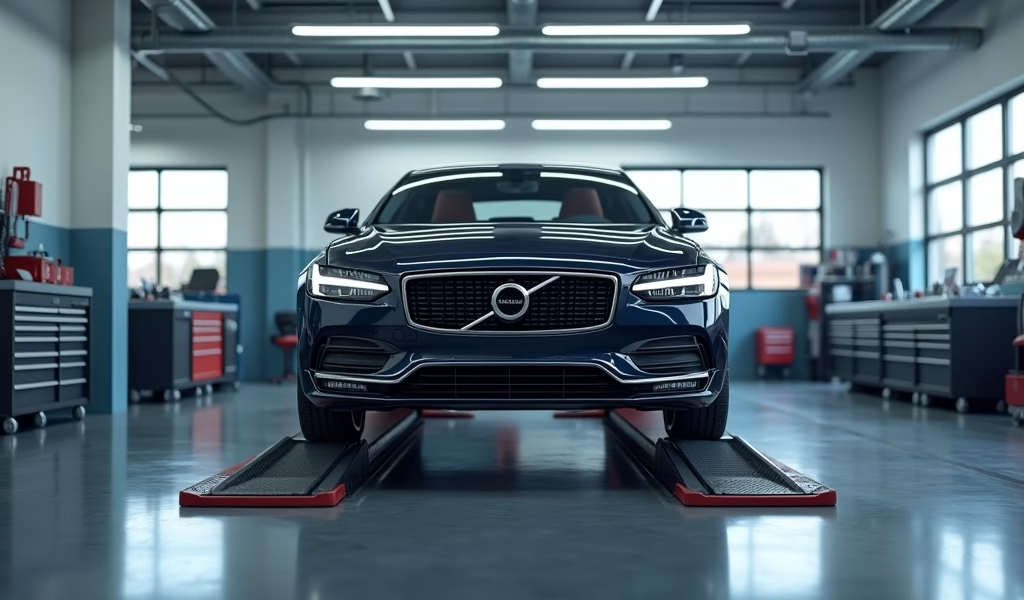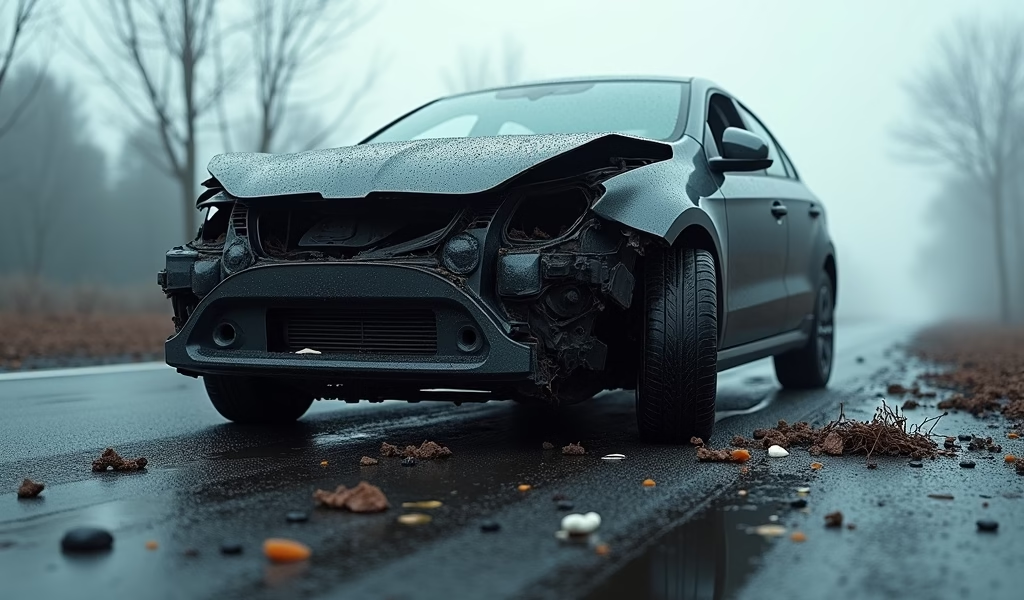Overview
This article provides five essential legal tips for handling the aftermath of car accidents: document everything at the scene, seek immediate medical attention, be strategic with insurance companies, understand statute of limitations deadlines, and consult with an experienced attorney. The guidance emphasizes the importance of proper documentation, caution when dealing with insurers, and the value of legal representation to ensure fair compensation for injuries and damages.
Table of Contents
- Navigating the Aftermath: The Legal Side of Car Accidents
- Tip #1: Document Everything at the Accident Scene
- Tip #2: Seek Immediate Medical Attention
- Tip #3: Be Strategic When Dealing with Insurance Companies
- Tip #4: Know Your Statute of Limitations
- Tip #5: Consult with an Experienced Car Accident Attorney
- Conclusion: Protecting Your Rights and Future
- Frequently Asked Questions
Navigating the Aftermath: The Legal Side of Car Accidents
Car accidents hit like a wrench thrown into your well-oiled life machine. One moment you’re cruising down the highway, the next you’re dealing with injuries, repair bills, and the headache of attorney car accidents paperwork that follows. As someone who’s spent years helping drivers get back on the road, I can tell you that understanding the legal side of accidents is just as important as knowing what’s under your hood.
Here at Knows Your Car, we see the confusion in people’s eyes when they come in after an accident. The vehicle damage is just the beginning – there’s a whole legal journey ahead that many aren’t prepared for. That’s why I’ve put together these five critical tips based on my conversations with legal professionals and experiences with countless customers.
“The biggest mistake I see car owners make is thinking the insurance companies will handle everything fairly without any oversight,” says Marcus Alves, founder of Knows Your Car. “That’s like expecting your engine to tune itself – sometimes you need an expert’s touch to get things right.”
Whether you’ve recently been in a fender bender or you’re just preparing for the unexpected, these insights will help you navigate the complex intersection of cars and law. Let’s get your legal knowledge tuned up and ready for the road ahead.
Tip #1: Document Everything at the Accident Scene
The moments right after an accident are crucial – think of it like diagnosing a problem before parts get moved around. Your ability to collect evidence now can make or break your case later.
Start with photos – lots of them. Capture every angle of vehicle damage, the overall accident scene, road conditions, traffic signs, and even weather conditions. These visual records become your mechanical proof of what happened when memories start to fade.
Don’t just photograph the obvious dents and scratches. Document:
- Position of both vehicles before they’re moved
- Skid marks on the road (your accident’s “wear patterns”)
- Broken glass or vehicle parts
- Your injuries, even minor ones
- The other driver’s license plate, insurance card, and driver’s license
Witness information is like having extra sensors monitoring what happened. Collect names and phone numbers from anyone who saw the accident. Their unbiased perspective can be invaluable when stories start to conflict.
Get the police report number and officer’s information. This official record works like your vehicle’s computer diagnostic – it’s the baseline documentation that everyone will reference.
“I always tell my customers to use their phone’s voice recorder to capture their immediate recollections,” says Marcus Alves. “Your fresh observations are like that initial engine sound you hear – they often reveal problems that become harder to identify later.”
Remember to exchange information with the other driver, but stick to the basics. Just like you wouldn’t discuss your repair strategy with someone who damaged your car, avoid discussing fault or making statements that could be used against you later.
Tip #2: Seek Immediate Medical Attention

Your body is more complex than any vehicle, and accident injuries aren’t always immediately visible – just like those hidden mechanical issues that don’t trigger warning lights right away.
Even if you feel “just a little sore,” get checked out by a medical professional. Adrenaline is like your body’s emergency override system – it can mask significant pain and injury symptoms for hours or even days after an accident.
Delayed medical care creates two problems:
- Health complications that could have been prevented with early treatment
- Insurance companies questioning whether your injuries were really caused by the accident
Think of medical documentation as your repair record. Each doctor visit, treatment plan, and medication creates a paper trail connecting your injuries directly to the accident. Without this documentation, proving your case becomes as difficult as diagnosing an intermittent engine problem without scan data.
Follow your doctor’s orders exactly as prescribed. Skipping appointments or ignoring treatment recommendations is like ignoring maintenance schedules – it can lead to bigger problems and give insurance companies reason to minimize your claim.
Keep detailed records of all medical expenses, including:
- Emergency room and hospital bills
- Doctor appointments and specialist visits
- Prescription costs
- Physical therapy sessions
- Medical equipment (like braces or crutches)
- Travel expenses to medical appointments
These records become your repair invoice – they document exactly what it costs to get you back to pre-accident condition. When working with auto accidents lawyers, these detailed records make calculating your damages much more straightforward.
Tip #3: Be Strategic When Dealing with Insurance Companies
Insurance adjusters are like parts salespeople who work for the manufacturer – they’re not necessarily looking out for your best interests. Their job is to settle your claim for as little as possible, and they have a toolbox full of tactics to make that happen.
When that friendly adjuster calls, remember they’re trained negotiators. They may ask for recorded statements, hoping you’ll say something that undermines your claim. It’s like when someone asks what sounds your car was making before it broke down – your imprecise description might lead to incorrect conclusions.
Be especially wary of quick settlement offers. Early proposals typically come before you fully understand the extent of your injuries or vehicle damage. Accepting too soon is like agreeing to a repair estimate before the mechanic has looked under the hood – you might be missing major problems.
Insurance company tactics to watch for include:
- Requesting unnecessary documentation to delay processing
- Disputing the necessity of medical treatments
- Claiming your injuries existed before the accident
- Monitoring your social media for posts that contradict your claims
- Making lowball offers just before bills are due, hoping financial pressure will force acceptance
According to the Insurance Information Institute, insurers process millions of claims annually, giving them vast experience in minimizing payouts. Their adjusters negotiate claims daily, while this might be your first major accident – creating an uneven playing field.
Document every communication with insurance companies. Note the date, time, who you spoke with, and what was discussed. This communication log becomes your service record, proving exactly what was said and when.
Remember that anything you sign could potentially limit your rights. Just as you’d carefully review a repair contract, have any insurance documents reviewed by a legal professional before signing. Many attorneys for car wrecks offer free consultations to review settlement offers.
Tip #4: Know Your Statute of Limitations
Think of the statute of limitations like your vehicle’s warranty period – once it expires, you’re out of luck. These legal deadlines strictly limit how long you have to file a lawsuit after an accident, and they vary significantly depending on where you live.
Most states allow between one and four years to file a personal injury claim after a car accident, but some jurisdictions have exceptions or special circumstances that can alter these timeframes. For instance, claims against government entities often have much shorter notice requirements – sometimes as little as 30-90 days.
The clock typically starts ticking on the date of the accident, but there are some exceptions:
- If injuries weren’t immediately discoverable
- For minors (the clock may start when they reach 18)
- If the at-fault driver left the state
Missing these deadlines is catastrophic to your case. No matter how clear the other driver’s fault or how serious your injuries, courts will almost always dismiss claims filed after the statute of limitations expires. It’s like trying to claim a manufacturer’s defect after the warranty period – even legitimate problems won’t be covered.
A common misconception is that starting the insurance claims process stops the statute of limitations clock – it doesn’t. Even if you’re actively negotiating with an insurance company, you must file your lawsuit before the deadline expires or risk losing your right to sue forever.
According to research from Justia, many valid claims are lost each year simply because victims waited too long to take legal action. Don’t let procedural deadlines rob you of your right to compensation.
The safest approach is to consult with an attorney well before these deadlines approach. Just as you wouldn’t wait until your check engine light has been on for months, don’t delay seeking legal advice after a serious accident.
Tip #5: Consult with an Experienced Car Accident Attorney

Hiring a car accident attorney is like bringing in a master mechanic for a complex engine rebuild – their specialized knowledge and tools make all the difference in the outcome.
Many people hesitate to contact attorneys, worried about costs. But most top-rated car accident lawyers work on a contingency fee basis, meaning they only get paid if you receive compensation. This arrangement is like a performance guarantee – they’re invested in maximizing your recovery.
“Working without an attorney after a serious accident is like trying to rebuild a transmission with kitchen utensils,” says Marcus Alves. “You might eventually get it done, but the results probably won’t be what you hoped for.”
An experienced attorney brings several valuable tools to your case:
- Accurate case valuation based on similar claims and settlements
- Investigation resources, including accident reconstructionists and medical experts
- Knowledge of insurance company tactics and how to counter them
- Negotiation skills refined through hundreds of similar cases
- Litigation experience if a fair settlement can’t be reached
Studies by the Insurance Institute for Highway Safety show that accident victims who hire attorneys typically receive significantly higher settlements than those who handle claims themselves – often three to four times more, even after attorney fees.
When selecting an attorney, look for someone who specializes in car accident cases specifically. A general practice lawyer handling car accidents is like a general mechanic working on a specialized European sports car – they might get the job done, but a specialist will likely do it better.
Ask potential attorneys about:
- Their specific experience with cases similar to yours
- Their track record of settlements and verdicts
- Who will actually be handling your case (partner or associate)
- Their communication style and availability
- Their approach to negotiation versus litigation
Most reputable attorneys offer free initial consultations, giving you the chance to find someone you’re comfortable working with. This relationship is important – your case might take months or even years to resolve, and you’ll need to share personal information throughout the process.
Conclusion: Protecting Your Rights and Future
Navigating the aftermath of a car accident is like troubleshooting a complex mechanical problem – it requires knowledge, patience, and sometimes professional help. By following these five essential tips, you’re giving yourself the best chance at a full and fair recovery, both physically and financially.
Remember to document everything, seek medical attention immediately, be cautious with insurance companies, understand your time limitations, and consult with an experienced attorney when needed. These steps form your roadmap through the complicated terrain of accident claims.
At Knows Your Car, we’re committed to helping you keep your vehicle running smoothly, but we also understand that accidents happen. When they do, being prepared can make all the difference. Just as regular maintenance prevents major breakdowns, knowing these legal essentials helps prevent major headaches after an accident.
The legal system, like a well-designed engine, follows specific rules and processes. Understanding these fundamentals gives you the confidence to advocate for yourself and recognize when it’s time to bring in the experts.
Drive safely out there, but if trouble finds you, remember – you now have the knowledge to protect your rights and navigate the road to recovery.
Frequently Asked Questions
How soon after a car accident should I contact an attorney?
You should contact an attorney as soon as possible after seeking medical treatment. Early legal consultation helps preserve evidence and prevents costly mistakes in your case.
What if I can’t afford a car accident attorney?
Most car accident attorneys work on a contingency fee basis, meaning they only get paid if you win your case. The initial consultation is typically free, so there’s no financial risk to discuss your options.
Should I accept the insurance company’s first settlement offer?
Generally, no. Initial settlement offers are typically much lower than what your case is worth, especially before you fully understand the extent of your injuries. Consult with an attorney before accepting any offer.
What compensation might I be entitled to after a car accident?
You may be entitled to compensation for medical expenses, lost wages, property damage, pain and suffering, and in some cases, punitive damages. The specific amounts depend on the circumstances of your accident and your state’s laws.
Can I still recover damages if I was partially at fault for the accident?
In many states, yes, under comparative negligence laws. Your compensation may be reduced by your percentage of fault, but you can still recover damages as long as you weren’t primarily responsible (exact rules vary by state).


Pingback: Company Vehicle Accident Lawyer 5 Hacks - knowsyourcar.com